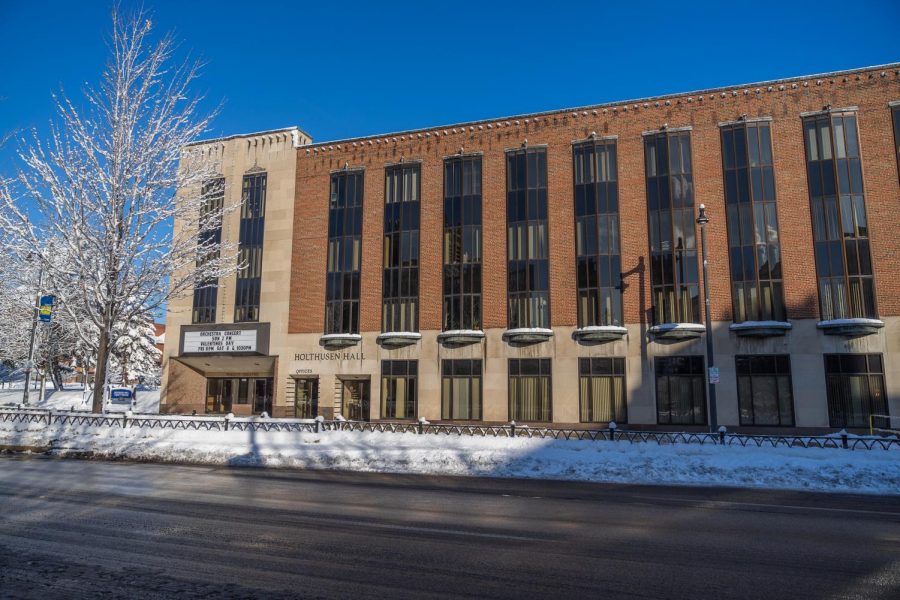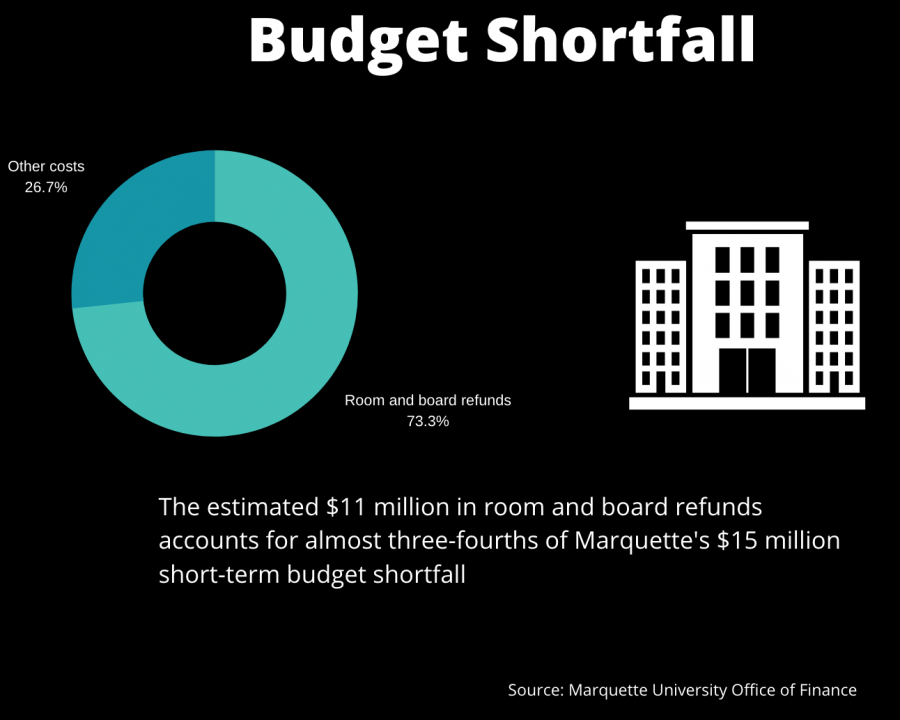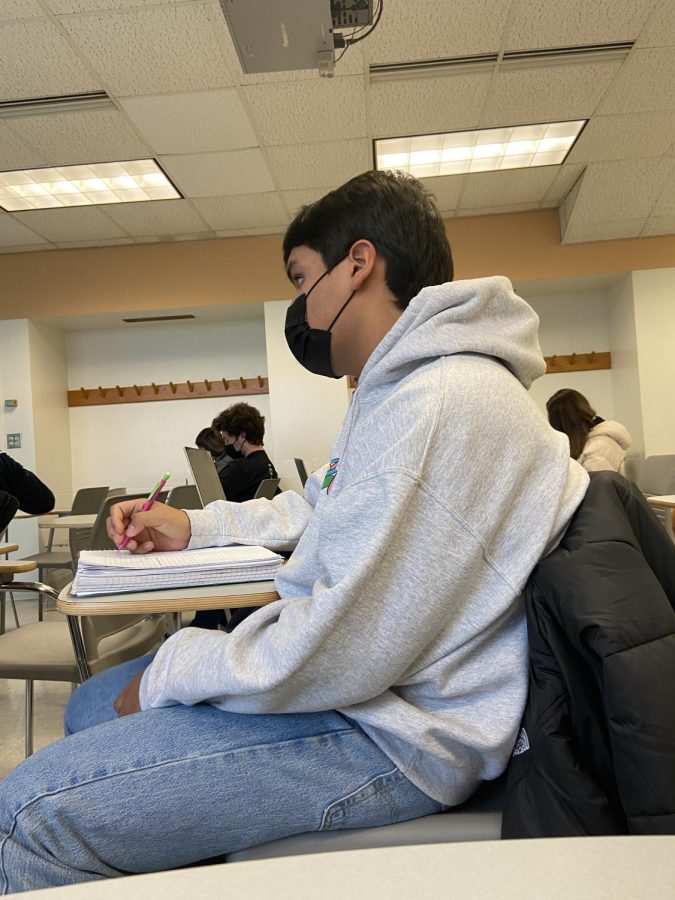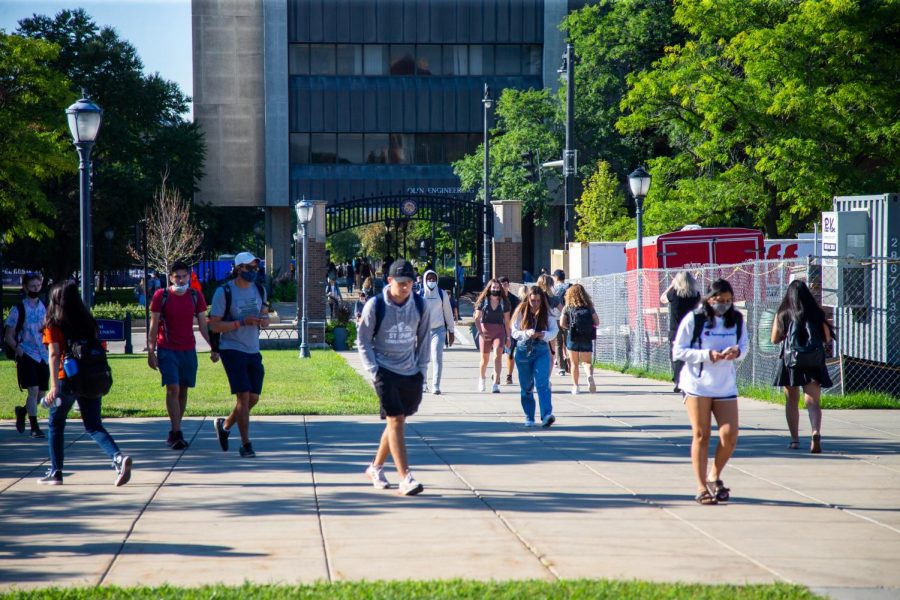The Coronavius Aid, Relief, and Economic Security Act, an economic relief bill passed by Congress in March, has made several provisions for universities and their students in wake of the COVID-19 pandemic.
Marquette received over $6.6 million in aid. The Department of Education directs that half this aid — about $3.3 million — be distributed to students, particularly those with the most need, according to a university news release.
The grant money is meant to be used for expenses such as course materials, food, housing and healthcare. Each institution individually decides how to distribute the money, according to the U.S. Department of Education.
The university determined that 75% of the aid will automatically go to students eligible for Federal Pell Grants, with the remaining 25% given to Title IV eligible students who apply for the funds, according to the news release. This decision was based on the federal allocation formula.
This formula, prescribed in the CARES Act, is weighted “significantly” by the number of full-time student who are Pell-eligible, according to the Department of Education. However, it also takes into account the total population the school and the number of students who were not enrolled full-time. The formula was created using the most recent data from the Integrated Postsecondary Education Data System and Federal Student Aid.
Pell Grants are awarded to students who display “exceptional financial need” who have not yet earned a degree, according to the Federal Student Aid website. Students eligible will receive the funds this week.
Title IV eligibility is determined by filling out the Free Application for Federal Student Aid.
“Students with expenses due to COVID-19 disruption who are enrolled for spring term 2020 and have a valid FAFSA on file will receive an email … with a link to an online application that must be completed and returned by May 11 to be considered for emergency funding,” according to the news release.
All students who submit the application by the deadline will be considered for grant money, university spokesperson Chris Stolarski said in an email.
Elise Sledge, a junior in the College of Arts & Sciences, said she wouldn’t have known about the CARES grant if she had not looked in her email’s spam folder.
She said she did not automatically receive the grant, but will apply for it. Sledge said the process seemed simple.
“All you have to do is indicate what you need it for, why you need it and the impact that COVID-19 (and) campus operations has on your financial situation. The email includes instructions on how to fill it out too,” she said.
Sledge said she thought the fact that the email regarding the grant was not sent the “usual way” Marquette communicates with its students, since she found the email in her spam folder. It is unclear if other students faced the same issue.
“I definitely feel like they could send more emails about it, since it’s easy to miss,” Sledge said. “Some students might not know what it is.”
However, Sledge said she approves of the way Marquette is giving money to the students who need it the most first.
“If I do receive some money, it would definitely help me continue saving up for graduate school,” Sledge said. “I technically had four jobs on campus so I lost three of them — the library, Marquette Place and the Lunda Room — and I’ve only been able to continue tutoring, which doesn’t pay much. So it would make up for the money I lost from not being able to work.”
Students who do not qualify for the CARES Act grant, but who express “significant” need, can apply for other emergency funds. According to the news release, Marquette is making $350,000 available through a Federal Supplemental Education Opportunity Grant, and the university’s endowed Bridge to the Future fund is also available.
It is unclear what the university defines as “significant” need.
“Everyone’s need is unique to their individual situation, and it is difficult to imagine anyone who isn’t experiencing some financial setback as a result of COVID-19,” Stolarski said in an email. “The university must balance the harsh financial realities everyone is facing with the very limited funding that is available.”
Federal Supplemental Education Opportunity Grants are administered directly by the financial aid office of each institution to undergraduate students with “exceptional” financial need, according to the Federal Student Aid website. This is not directly related to COVID-19 aid.
The university’s Bridge to the Future fund is a fund established to assist students who experience changes in their economic circumstances, which may effect their future at Marquette, according to Marquette’s website.
The other $3.3 million Marquette received in aid will go towards room and board refunds, as well as other “unexpected pandemic response costs,” according to the university news release. Some of these unexpected costs are due to revenue losses, Stolarski said, which come from the cancellation of events and services on campus.
“Marquette also experienced unbudgeted expenses required to facilitate the transition to distance learning and accommodate a remote workforce, as well as costs to clean and secure the campus,” Stolarski said in an email.
According to the news release, students must call Marquette Central at (414) 288-4000 to be considered for the grant and indicate that their financial situation has “drastically” changed due to COVID-19.
This story was written by Alexa Jurado. She can be reached at alexa.jurado@marquette.edu.











